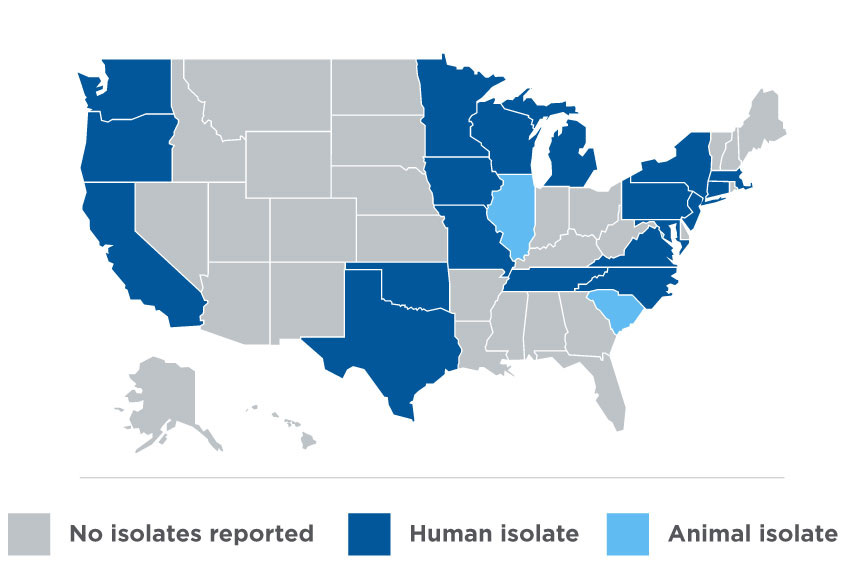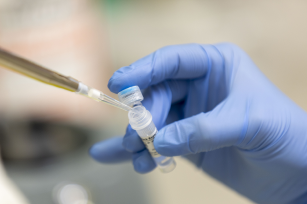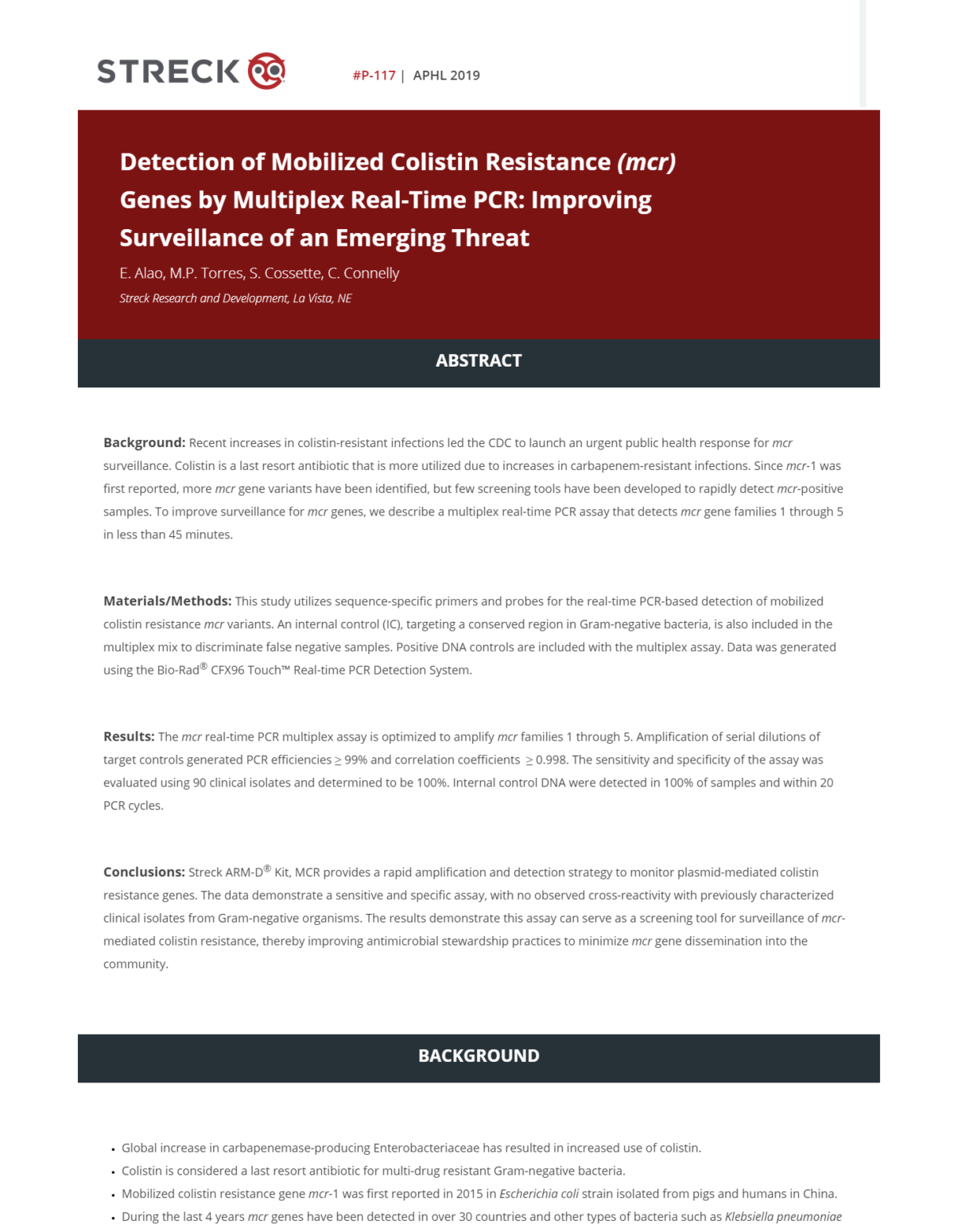A tool to track the spread of mcr
Topics Featured
Plasmid-mediated colistin resistance caused by the mcr gene is of increasing public health concern as it continues to spread worldwide. Colistin is a crucial antibiotic of last resort that is used to treat patients with infections caused by multidrug-resistant Gram-negative bacteria. The mcr-1 gene exists in plasmids, small circular double-stranded DNA molecules, that can be transferred between bacteria species, contributing to the increasing prevalence of multidrug-resistance. The emergence of mcr-1 as a transferrable gene conferring resistance to colistin could limit future treatment options for infections caused by carbapenem-resistant Enterobacteriaceae (CRE).

In the last 4 years, plasmid-mediated colistin resistance caused by mcr genes has been detected in over 30 countries in multiple species of bacteria
The mobilized colistin resistance gene mcr-1 was first reported in 2015 in Escherichia coli strains isolated from pigs and humans in China. The mcr-2 gene was later identified in porcine and bovine colistin-resistant E. coli bacteria isolates in Belgium in 2016, followed by the identification of mcr-3 the following year.

In the last 4 years, plasmid-mediated colistin resistance caused by mcr genes has been detected in over 30 countries in multiple species of bacteria, including Klebsiella pneumoniae and Salmonella enterica. According to the CDC, in the United States alone, over 50 human isolates have been reported across 19 states. Bacterial isolates from food animal sources in the United States have also been found to harbor mcr-1.
Improved surveillance for mcr genes
In response to the mcr-1 gene being found in a human urine sample in Pennsylvania, the CDC launched an urgent public health response to track, detect, and prevent the spread of mcr and other emerging threats responsible for antibiotic resistance. Since mcr-1 was first reported, more mcr gene variants have been identified, but few screening tools have been developed to rapidly detect mcr positive bacteria samples. To combat this problem and improve surveillance for mcr genes, we developed the Streck ARM-D® Kit, MCR, a multiplex real-time PCR kit that detects and differentiates mcr-1, mcr-2, and mcr-3-4-5 gene families in less than 45 minutes.
Key features of the mcr gene detection kit
- Detects and differentiates mcr-1, mcr-2, and mcr-3-4-5 gene families
- Detects 48 mcr allelic variants
- Includes validated positive controls for each gene target to monitor analytical process
- Compatible with most 4-channel real-time PCR thermal cyclers
- 100% sensitivity and 100% specificity
- Rapid molecular detection strategy for monitoring antibiotic resistance

The Streck ARM-D Kit, MCR is part of a family of comprehensive, multiplex real-time PCR kits that detect over 1,000 antimicrobial resistance (AMR) gene variants from 26 different gene target families. At Streck, we recognize how the rapid global spread of the mcr gene highlights the need for a comprehensive detection kit to combat this emerging health threat. With the addition of the mcr gene detection kit, the ARM-D Kit portfolio provides users with a tool to track the spread of colistin resistance, helping to guide antibiotic surveillance and infection control practices.
We recognize how the rapid global spread of the mcr gene highlights the need for a comprehensive detection kit to combat this public health threat.
A recent poster presented at the Association of Public Health Laboratories (APHL) 2019 annual conference describes the utilization of the Streck ARM-D Kit, MCR as a rapid amplification and detection method to monitor plasmid-mediated colistin resistance genes. The kit was found to detect and differentiate mcr-1, mcr-2, and mcr-3-4-5 with 100% sensitivity and 100% specificity. The results demonstrated the use of the Streck ARM-D Kit, MCR as a screening tool for the surveillance of mcr, improving antimicrobial stewardship practices.

View the poster: Detection of Mobilized Colistin Resistance (mcr) Genes by Multiplex Real-Time PCR: Improving Surveillance of an Emerging Threat
E. Alao, M.P. Torres, S. Cossette, C. Connelly
For more information about our comprehensive line of antibiotic resistance detection kits and to browse webinars, talks, and posters related to ARM-D kits, visit our resource page.
Streck ARM-D Kits are for Research Use Only. Not for use in diagnostic procedures.


How can wastewater predict the future?

